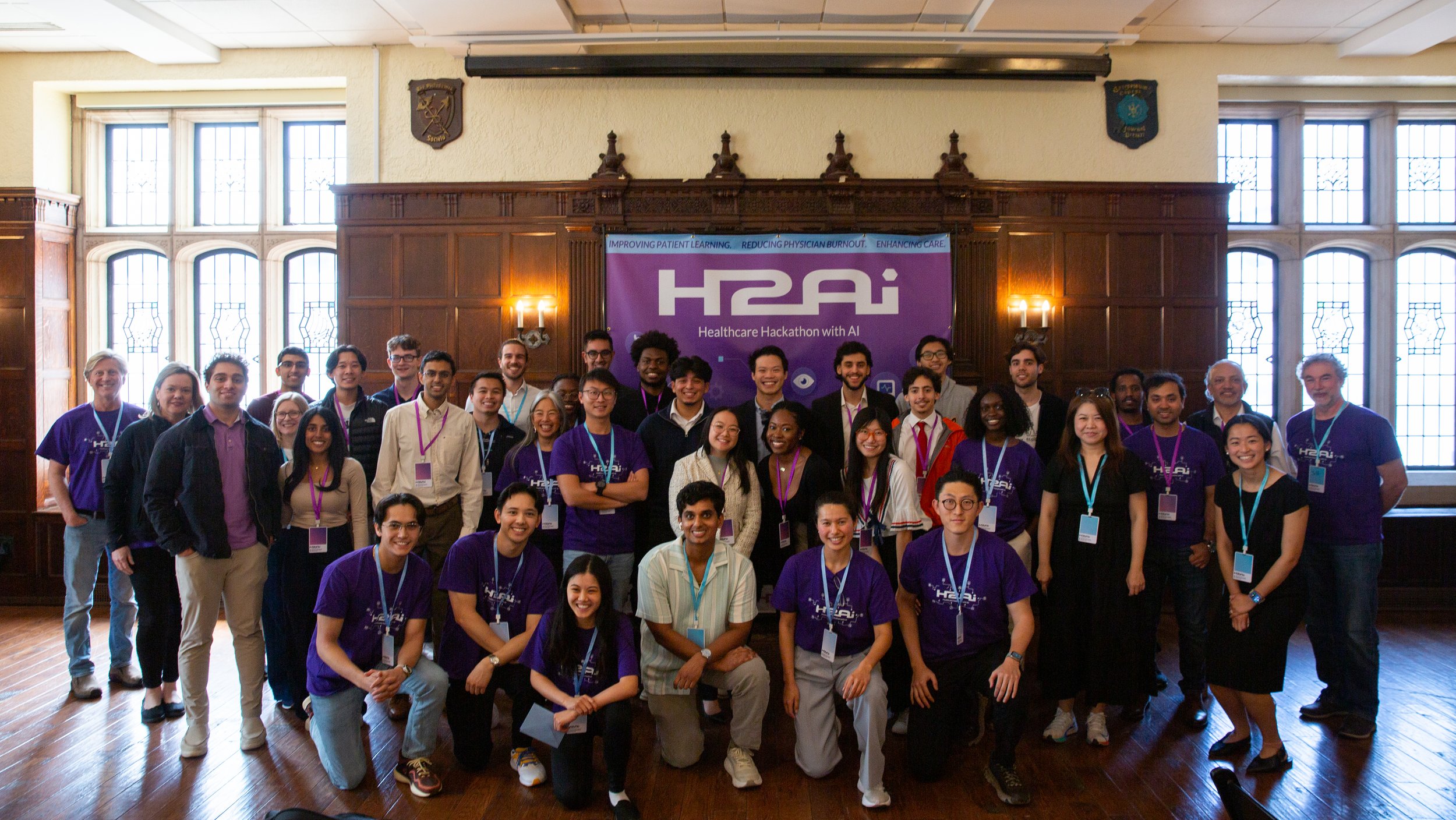Objective
Inspired by the dynamic and collaborative spirit of hackathons—a blend of “hacking” and “marathon” where people come together to solve problems through rapid, collaborative engineering—Jacqueline Sandling and other Georgetown medical students decided to organize one themselves and call it H2AI, which stands for Healthcare Hackathon with AI. They assembled a team of medical students passionate about using generative AI software like ChatGPT to reduce physician burnout, enhance clinical practice, and improve patient outcomes.
The H2AI event, held at Georgetown University’s Copley Formal Lounge, offered an intensive, three-day experience where teams had 36 hours to develop solutions. The hackathon aimed to address four critical areas identified with clinical faculty and literature reviews: ambient documentation, clinic visit info-button, patient navigation informed by risk calculator, and reproductive health access. With guidance from experienced mentors and workshop leaders, participants worked alongside their peers in a collaborative environment. The event concluded with a competitive pitch session, where teams presented their solutions to a panel of judges—experts from various fields—who evaluated each pitch for creativity and impact.
Outcomes
Participants demonstrated remarkable creativity and technical expertise in applying AI tools to tackle complex healthcare problems. The teams demonstrated the innovative use of various AI technologies, including natural language processing, retrieval-augmented generation, and computer vision. In particular, the winning team, Aster, developed an AI-powered solution that leveraged language models to streamline clinical documentation and enhance provider workflows. Other teams used optical character recognition to automate form filling and information extraction from electronic health records.
Teams thrived on the interactions with various stakeholders and individuals from diverse fields. While some teams naturally gravitated towards members with similar expertise, the connections made during H2AI hold great potential for future collaborative innovation. The most successful teams cooperated across different fields of expertise, consulted with mentors, or learned from workshops to consider the business, healthcare, and technology aspects of the challenge cases.
The post-event survey showed a lasting positive impact on the participants’ career outlook. Students reported learning new skills, including front-end and back-end development, AI applications, and business strategies. They appreciated the exposure to new concepts and practical experiences gained. Around 70% of respondents planned to learn more about the concepts and tools implemented, and 50% were hopeful to work on one or more ideas generated during the event. The participants valued the opportunity to engage with individuals from diverse backgrounds and expressed a desire to bring their hackathon ideas to fruition, while the organizers plan to build on this momentum to transform these ideas into real-world solutions that prioritize patient care.
Team

Jacqueline Sandling
School of Medicine

Yumin Gao
School of Medicine

Anushka Desai
School of Medicine

Arthi Bala
School of Medicine
Athena Nguyen
School of Medicine

Christopher Guirguis
School of Medicine

Dylan Ratnarajah
School of Medicine

Enrico Bautista
School of Medicine

Francis Arellano
School of Medicine

Rohan Rani
School of Medicine

Shivani Thakur
School of Medicine

